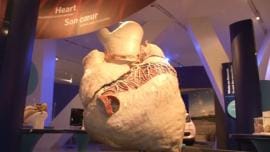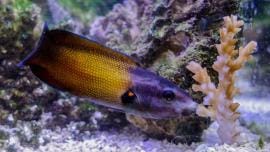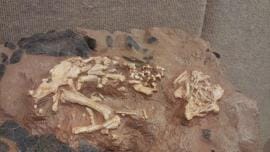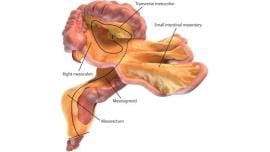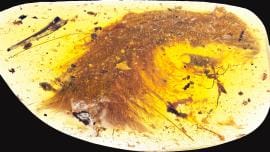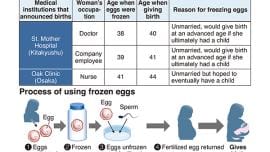Bacteria, and Other Gut Feelings
27 July 2021, 12:14 PM
SHOUT
World's biggest heart - from a blue whale - displayed in Toronto
3 August 2017, 06:03 AM
Biology
With a sloppy 'kiss,' intrepid fish enjoys perilous feast
6 June 2017, 10:31 AM
Special Read
Myth busted: People smell as well as dogs and rodents
15 May 2017, 07:30 AM
Science, Gadgets, and Tech
Giant bird-like dinosaur species found in China: Study
11 May 2017, 05:57 AM
Science, Gadgets, and Tech
New organ discovered inside human belly
4 January 2017, 15:20 PM
Biology
Remarkable feathered dinosaur tail found in chunk of amber
9 December 2016, 07:52 AM
World
51-mn-year-old genetic secret to Darwin's theory unlocked
5 December 2016, 11:42 AM
World
Death spiral: 4th phase of life may mean end nearing
30 July 2016, 09:44 AM
Biology
FEATURE: More Japanese women freeze eggs for future babies
21 March 2016, 07:47 AM
Biology
World's biggest heart - from a blue whale - displayed in Toronto
The world's biggest heart, which came from a blue whale found dead in 2014, is displayed at the Royal Ontario Museum in Toronto.
3 August 2017, 06:03 AM
New organ discovered inside human belly
Irish researchers confirm that the mesentery — a fold of membrane that connects the intestine to the abdomen — is its own continuous organ, and not a series of fragmented parts like experts had previously thought, reports Yahoo News.
4 January 2017, 15:20 PM
Death spiral: 4th phase of life may mean end nearing
A growing research body suggests that there is a fourth phase immediately preceding death that scientists have dubbed the "death spiral".
30 July 2016, 09:44 AM
FEATURE: More Japanese women freeze eggs for future babies
At least 23 medical institutions around the country preserve the frozen eggs of healthy women to help them have babies in the future, and three women in their 40s have used their frozen eggs to have babies, The Yomiuri Shimbun comes to learn.
21 March 2016, 07:47 AM
Alibaba's Ma says IPO of Ant Financial unlikely in 2015
Jack Ma, chairman of Chinese e-commerce giant Alibaba Group Holding, said on Monday he hoped the company's financial affiliate would list in Asia at some point, but that no decision on the timing or location had been made.
The comments follow a Bloomberg report last week quoting unidentified sources as saying Zhejiang Ant Small & Micro Financial Services Group, known as Ant Financial, was planning an initial public offering (IPO) next year and the company had an estimated value of about $50 billion.
"Ant Financial is still a baby today with great potential. It's just too early to talk about who it's going to get married to," Ma said. Asked if a listing would happen this year, he responded: "I don't think so."
Set up in 2014, Ant Financial has been growing rapidly, largely through targeting smaller businesses and hundreds of millions of consumers who are often under served by China's larger banks. Ant runs the Alipay online payment platform, the linked Yu'e Bao money market fund and other services.
2 February 2015, 18:45 PM

